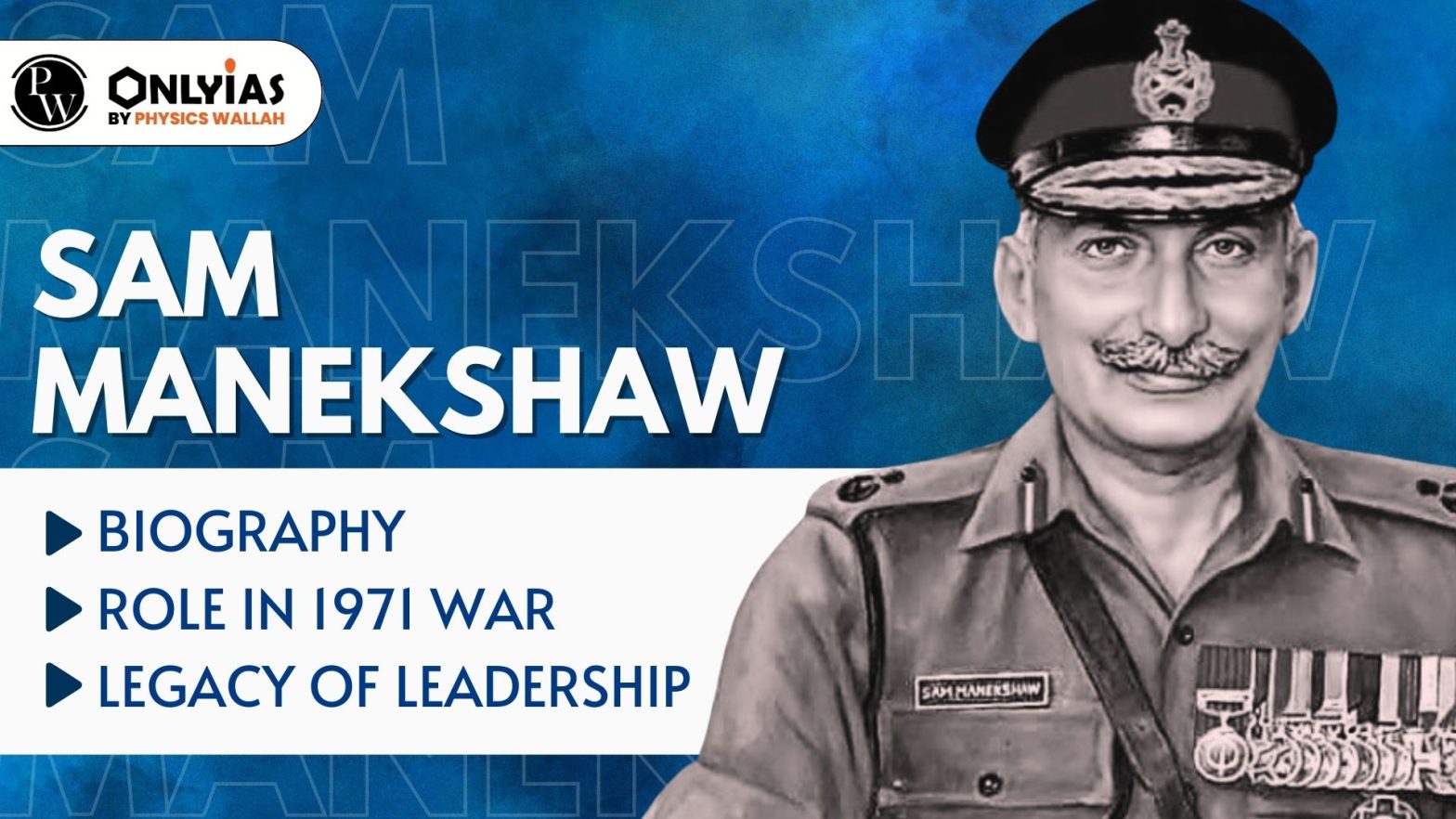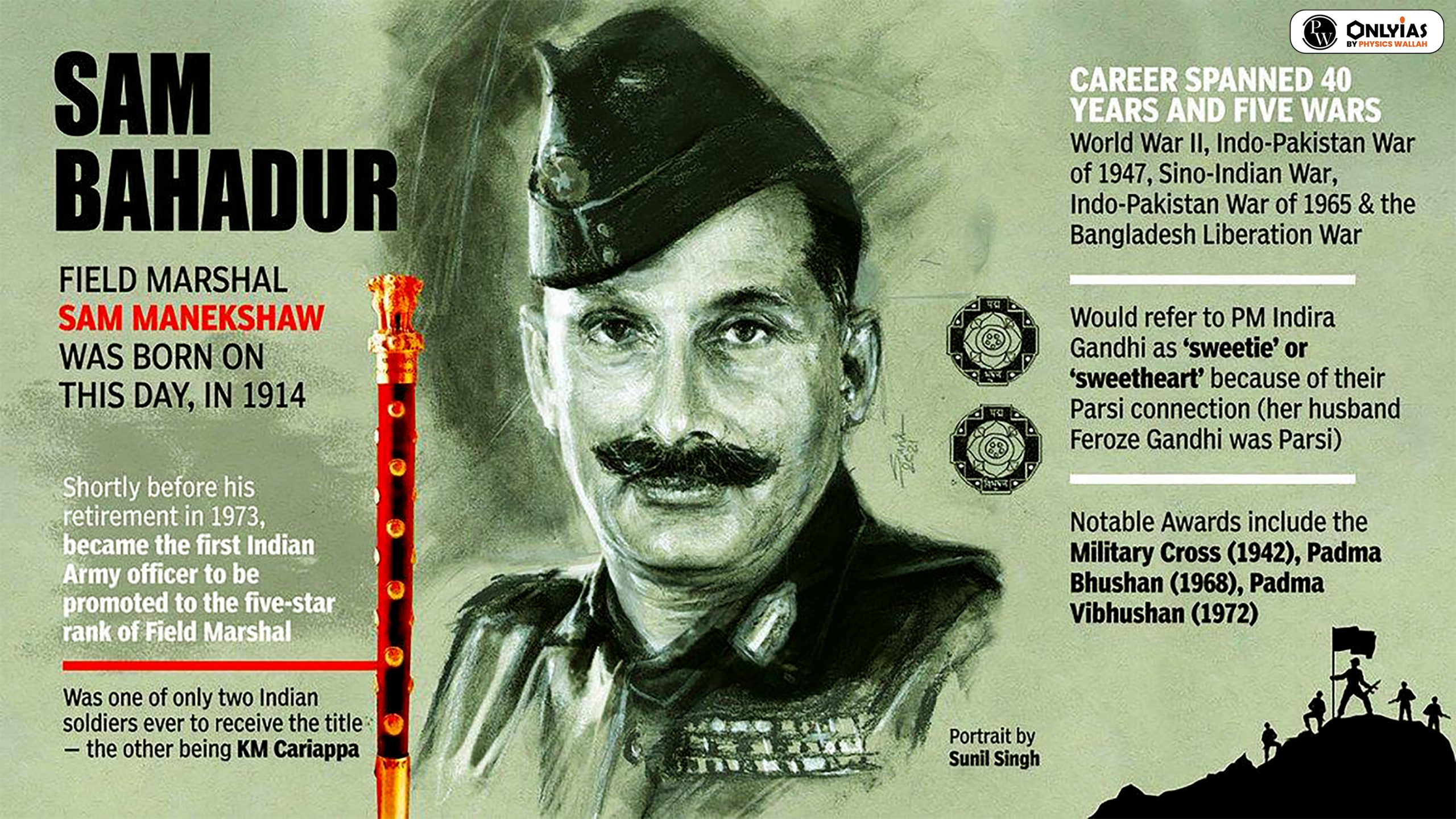Context: A movie on the life of Field Marshal Sam Manekshaw will be released soon.

Context: A movie on the life of Field Marshal Sam Manekshaw will be released soon. Sam Bahadur is based on the life of India’s first Field Marshal Sam Manekshaw.

Also Read – India Vs Bangladesh: A Comprehensive Comparison
| Also Read Other Biography | |
|---|---|
| Lal Bahdur Shastri | Shaheed Bhagat Singh |
| Jayaprakash Narayan | Nanaji Deshmukh |
| Indira Gandhi | Sardar Vallabhbhai Patel |
| Lala Lajpat Rai | Netaji Subhas Chandra Bose |
| Mahatma Gandhi | |
| Must Read | |
| NCERT Notes For UPSC | UPSC Daily Current Affairs |
| UPSC Blogs | UPSC Daily Editorials |
| Daily Current Affairs Quiz | Daily Main Answer Writing |
| UPSC Mains Previous Year Papers | UPSC Test Series 2024 |
Sam Hormusji Framji Jamshedji Manekshaw, also known as Sam Bahadur ("Sam the Brave"), was the former Chief of the Army Staff of the Indian Army.
Sam Manekshaw’s active military career spanned four decades and five wars.
Manekshaw qualified the entrance test to enroll in the first batch of Indian Military Academy (IMA). He was part of the first batch of cadets, called "The Pioneers".
Manekshaw joined the 2nd Battalion, Royal Scots, at Lahore. Later he was posted to the 4th Battalion of the 12th Frontier Force Regiment.
During World War II, Manekshaw was posted in Burma to fight against the invading Japanese Army.
Manekshaw is widely regarded as the architect of India's victory during the 1971 Indo-Pakistani war. He planned and executed strategies that ensured the defeat of the Pakistani Army.
Sam Manekshaw became the first Indian Army officer to be promoted to the rank of field marshal.
Padma Vibhushan, the Padma Bhushan and the Military Cross were some of the awards given to Sam Manekshaw.
<div class="new-fform">
</div>